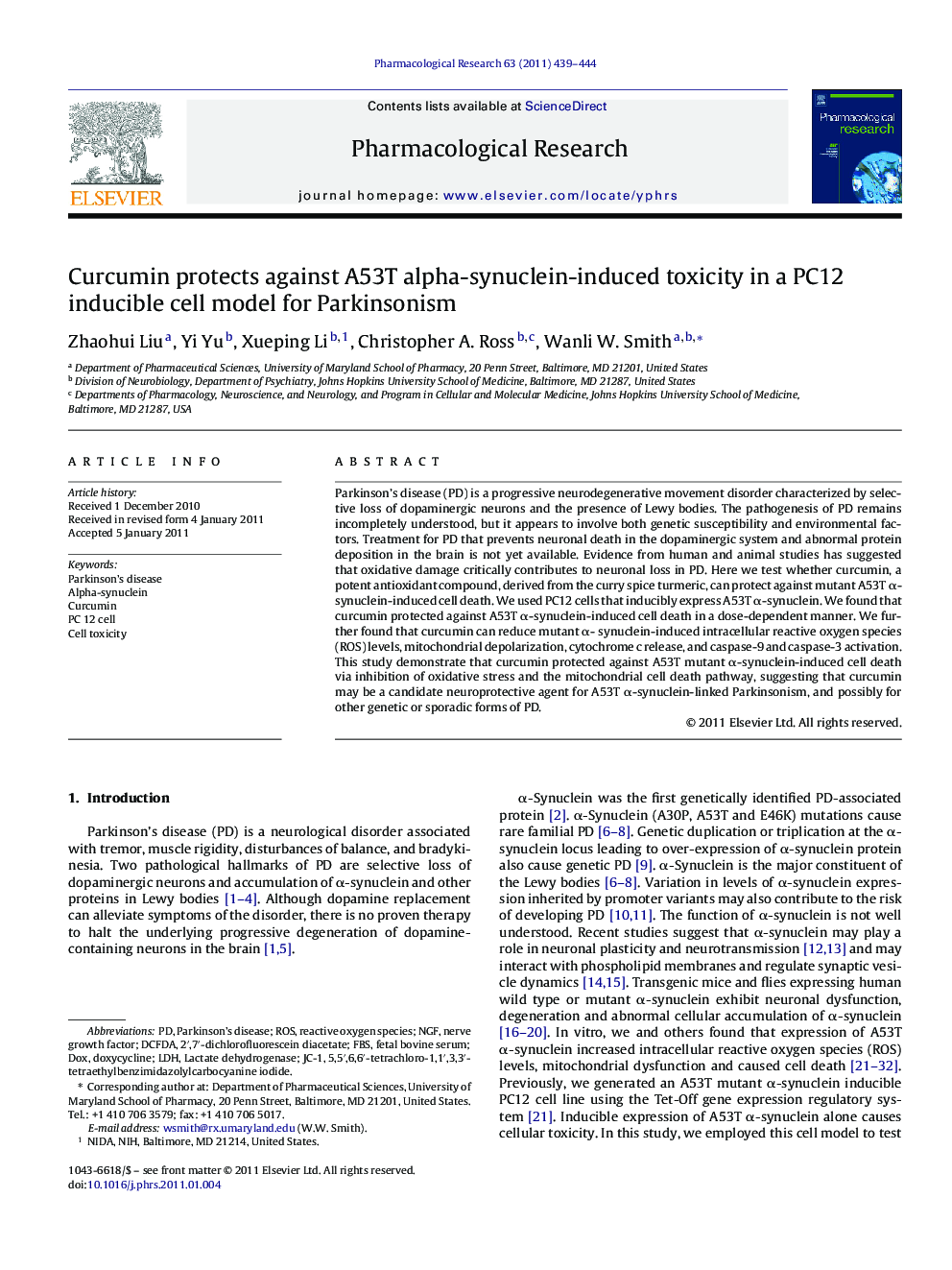| Article ID | Journal | Published Year | Pages | File Type |
|---|---|---|---|---|
| 2562124 | Pharmacological Research | 2011 | 6 Pages |
Parkinson's disease (PD) is a progressive neurodegenerative movement disorder characterized by selective loss of dopaminergic neurons and the presence of Lewy bodies. The pathogenesis of PD remains incompletely understood, but it appears to involve both genetic susceptibility and environmental factors. Treatment for PD that prevents neuronal death in the dopaminergic system and abnormal protein deposition in the brain is not yet available. Evidence from human and animal studies has suggested that oxidative damage critically contributes to neuronal loss in PD. Here we test whether curcumin, a potent antioxidant compound, derived from the curry spice turmeric, can protect against mutant A53T α-synuclein-induced cell death. We used PC12 cells that inducibly express A53T α-synuclein. We found that curcumin protected against A53T α-synuclein-induced cell death in a dose-dependent manner. We further found that curcumin can reduce mutant α- synuclein-induced intracellular reactive oxygen species (ROS) levels, mitochondrial depolarization, cytochrome c release, and caspase-9 and caspase-3 activation. This study demonstrate that curcumin protected against A53T mutant α-synuclein-induced cell death via inhibition of oxidative stress and the mitochondrial cell death pathway, suggesting that curcumin may be a candidate neuroprotective agent for A53T α-synuclein-linked Parkinsonism, and possibly for other genetic or sporadic forms of PD.
Graphical abstractFigure optionsDownload full-size imageDownload as PowerPoint slide
